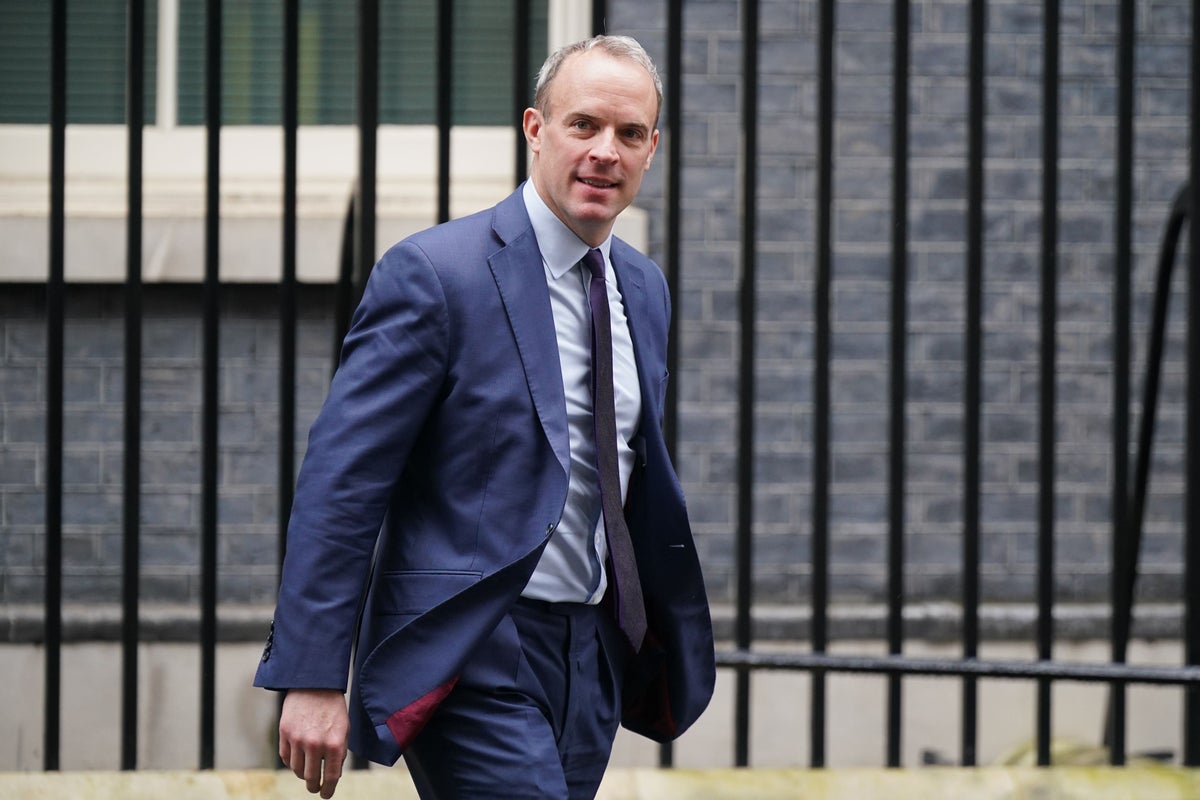
Rishi Sunak and Dominic Raab’s response to the report into bullying accusations against the former deputy prime minister has made future civil service complaints more difficult, according to a think tank chief.
Hannah White, director of the Institute for Government (IfG), said “no civil servant would feel encouraged to speak out in future” and called the episode a missed opportunity for the prime minister to reinforce standards.
It comes after Adam Tolley KC’s investigation into allegations of bullying concluded Mr Raab engaged in an “abuse or misuse of power” that “undermines or humiliates” while he was foreign secretary.
No civil servant would conclude that the current government is keen to establish a culture of accountability and professionalism— Hannah White, Institute for Government director
Mr Raab’s conduct in the department had a “significant adverse effect” on one colleague and he was also found to have been “intimidating” to staff by criticising “utterly useless” and “woeful” work while justice secretary.
Though he stopped short of describing the conduct as bullying, Mr Tolley’s findings were consistent with what he said would amount to the offence under the ministerial code.
Senior Conservative politician Mr Raab decided to resign from his positions as deputy prime minister and justice secretary after learning of the report’s contents, having previously vowed to quit if found to have bullied staff.
But in the aftermath of his exit, he launched a tirade against “activist civil servants” who he argued had the ability to stand in the way of minister’s democratic mandate by making complaints about ministers charged with implementing changes.
Mr Raab said the inquiry has “set a dangerous precedent” by setting a “low” threshold for bullying, which he says will “encourage spurious complaints”.
He later told BBC News on Friday: “What you’ve got is the risk here that a very small minority of very activist civil servants, with a passive-aggressive culture of the civil service, who don’t like some of the reforms – whether it’s Brexit, whether it’s parole reform, whether it’s human rights reform – effectively trying to block government.
“That’s not on, that’s not democratic.”
But the IfG’s Ms White said the reaction to the investigation may discourage future complaints rather than embolden civil servants.
Mr Sunak had received Mr Tolley’s report on Thursday morning but had spent close to 24 hours deliberating over whether to sack his deputy before Mr Raab decided to walk.
In a letter to Mr Raab, the prime minister said he accepted the resignation with “great sadness”.
Ms White, writing for the IfG’s website, said: “Reading Raab and Sunak’s letters together, no civil servant would conclude that the current Government is keen to establish a culture of accountability and professionalism or feel encouraged to speak out in future.
“An opportunity to reinforce standards has been missed, the mutual suspicion which has been growing between ministers and civil servants remains and nothing has been done to reduce the risk of future problems.”
Dave Penman, general secretary of the FDA — a union representing senior civil servants, including some of the complainants against Mr Raab — called for an independent inquiry into ministerial bullying and a change to how complaints are handled following the investigation.
No 10 has vowed to learn the lessons in terms of dealing with concerns about working practices in a “timely manner” but has so far refused to undertake a shake-up of the internal government complaints process.
Senior Tories spoke out after the publication of the 47-page investigation on Friday to argue Mr Raab should not have stood down and to criticise the tone of the complaints.
Former business secretary Jacob Rees-Mogg said Mr Raab should not have quit and that Mr Sunak should have refused to accept his deputy’s departure.
Mr Rees-Mogg told Channel 4 News: “I think his resignation was unnecessary and I think the prime minister should not have accepted it.
“I think it is very dangerous that we are setting the bar so low for this.”
Government whip Joy Morrissey tweeted that “we now live in a country where the definition of bullying includes telling someone to do their job”.
Mr Sunak filled the gap left in his Cabinet by Mr Raab’s departure by promoting two longstanding allies, with Alex Chalk becoming Justice Secretary and Oliver Dowden appointed as Deputy prime minister.







